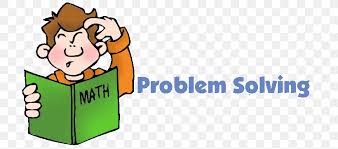FACTORS AFFECTING THE PERFORMANCE OF SECONDARY SCHOOL STUDENTS’ MATHEMATICS
₦10,000.00 ₦3,000.00
ABSTRACT
Lack of home supports, poor standard of living, students’ lack of motivation to learn or anxiety, poor teaching method, unfamiliar teachers’ attitude, classroom congestion and low utilization rate of classrooms are common features related to secondary education in Nigeria. They have negative impact on both secondary school teacher productivity and student learning input, and thus secondary school students’ academic performance.
Thus, study investigated the extent to which the aforementioned factors determine the performance of secondary school students in Senior Certificate Examinations (SSCE) conducted by the West Africa Examinations Council (WAEC) in Oyo State, Nigerian.200 students from5 secondary schools in Ibadan North-West local Government Area of Oyo State were randomly selected for the study. The multiple regression analysis, one-way analysis of variance and chi-square were used to analyze the data. The four research hypotheses which guided the study was tested at 0.05 minimum level of significance.
Findings revealed that the class factors when taken together, determined significantly secondary school students academic performance in Oyo state, Nigeria. These factors along with students’ variable and teachers’ variable were also found to have significant influence on secondary school student’s mathematics performance in the state.
Home support and parents’ socio-economic status were however discovered not to have significant influence on the students’ achievement in mathematics.
These findings are of great significance for educational planners, policy makers, parents, teachers and both federal and state governments.
Description
1.0 INTRODUCTION
Mathematics as a subject affects all aspectsof human life at different degrees. The social,economic, political, geographical, scientific andtechnological aspects of man is centered onnumbers. Disciplines where numbers arepredominant and form integral part of mathematicsinclude: statistics, accounts, arithmetic, engineering,etc. For example the earliest civilizationof mankind came through mathematical manipulations.
The inter-relationship between mathematics,development and advancement of humans showsthe importance of mathematics in life due to itsnumeral and symbolic nature, it is more related tothe scientific and technological facets of man’sworld than to any other aspect as it occurs andre-occurs in the physical and natural sciences.
The basic skills underlying all scientific andtechnological skills are the control of the tools ofmathematics.
Mathematics is seen as the language used todescribe the problems arising in most branchesof science and technology. It is a subject that isrelated to other school subjects in areas likenumber and numeration, variation, graphs,fractions, logarithms and indices, algebraicprocesses, solution of equation and also in areaand volume.
However, the performance of students inmathematics has been a great concern to thesociety. Awokoya (1975), Fafunwa (1980), bothagreed in different researches that we live in aworld where science and technology havebecome an integral part of the world culture,therefore for any nation to be relevant; it mustnot overlook the importance of mathematics inher educational system.
Accordingly, the observed poor performancein mathematics has been a matter of seriousconcern to all well-meaning educators. Students’poor performance in mathematics over the yearshas been attributed to the fact that the subject isdifficult. In the same view, student’s performancein mathematics tests has been observed to varyfrom person to person and from school to school.
This study therefore sought to provide dataon some of the factors that affects performance of students in mathematics and the suggestions and recommendation that can best be used to curb them.
1.1 HISTORICAL BACKGROUND OF THE STUDY
In most third world countries, enrolment exceeds provision for secondary education in terms of adequate furnished classrooms, hence, the perennial problem of classroom congestion. The poverty level and low classroom utilization rates in these countries worsen the situation.
Nigeria is a third world country where the situation is not different. Secondary education in the country is poorly funded, hence most of the secondary schools experience classroom congestion, low students-classroom-space and low classroom utilization rates. These situations may likely affect secondary school students’academic performance adversely; hence thissought to establish the extent to which theselected classroom factors determined secondary school student’s academic performance in OyoState, Nigeria.
The large number of students passingthrough the secondary school system in Oyo State is a serious problem, particularly with the state government’s inability to provide adequate furnished classrooms. The National policy onEducation prescribed a maximum of 30 students in a class, but in most secondary schools in thestate average class size exceeds 50. The situationhas negative impact on the average classroom space per student. Yet, these students need tolearn in comfort.
In most of the secondary schools in the state, the classroom utilization rate in perpetually low. This is because most of the schools are not able to have the eight periods in most school days. The few secondary schools that have enough teaching staff, at times have low classroom utilization rates, perhaps because of poor supervision. This situation does not favour academic learning.
The teacher factor and students’ achievement in mathematics at the senior secondary school level is another concern. The issue of teacher as a factor that affects students’ achievement in mathematics is not yet resolved. TIMSS (2002) found that trends in mathematics achievement over three decades showed a “re-occurring decimal” pointing to the teacher as a major decision variable in mathematics achievement. Earlier, Afrassa and Peeves (1999) showed that in Australia, the teacher factor cannot be undermined in questioning low achievement of students in mathematics.
In the same vein, the National Centre for Education Standard (2000) measured and found that teacher factor stands as a major pivot in students’ general achievement and mathematics in particular. Furthermore, Lamb and Fullarton (2000) found that in Australia, although student background variables influenced their achievement in mathematics, classroom and school factors contributed substantially.
In the Nigerian context, Ibebuike (2006) had noted that many students, even as far back as their primary school days did not take interest in mathematics to a meaningful degree; remarking that methods of instruction were not very favorable to these students. He posited that this was due to the paucity of competent and adequately qualified mathematics teachers who were invariably over labored. Arguing further, Iwuoha (2007) identified lack of thorough grooming in mathematics concepts; unsuitable teaching environment, wrong evaluation techniques by both teachers in schools and WAEC’s lack of incentives to mathematics teachers as major factors that caused low mathematics achievement. Hence, this study seeks to investigate teacher variable such as his method of teaching and attitude towards mathematics and their relationships with students’ achievement in mathematics.
In the same vein, a students’ home environment can be seen as an agency that aids in the construction of student attitudes and school achievement. Martin (1996) posited that many studies have in fact shown that there is a relationship between family background characteristics and students’ achievement. Researchers have suggested that achievement in mathematics and science in secondary school is a function of many interrelated variables such as students’ ability, attitudes and perceptions, socio-economic variables, parent and peer influences, and school related variables. Many of these variables are home and family-related and thus are difficult to change and are outside the control of educators (Sign, Granille and Dika, 2002).
Arguing further, Beane and Lipka (2003) posited that some of the young peoples’ difficulties at school can be due to problems caused by parents. They argued that home is the backbone for children’s personality development and influence children directly and indirectly through the kind of relationship the family members have among themselves as well as through helping then to get in contact with society.
In the Nigerian context, Sharma (1997) contended that home environment exerts a significant influence on students’ educational aspirations, which in turn influence the school-to-work transition. In other words, when parents have high expectations, youths have high occupational aspirations. Sjogren (2002) emphasized that youths from poorly educated parents are sensitive to economic incentives since they are to a greater extent attracted to occupations with high wage rates and high return in education.
Other factors such as mental disorder or deceases and lack of monitoring of schools by constituted government authorities and the corrupt nature of the educational system that has given a firm support for examination malpractices has worsen the problem.
Hence, this study seeks to investigate the extent of all these factors relationship with students’ achievement in mathematics at the senior secondary II level in Oyo State, Nigeria.
1.2 PROBLEM STATEMENT
The Chief Examiners’ reports of results of our public examinations (WAEC, 2009-2013) had shown markedly a decline in the percentage of passes in mathematics. Ahiakwo (2006) found that the performance of various levels of students had decelerated over the years especially in mathematics achievement with that of Nigerian children quite remarkable. There is a perceived risk that the percentage of failures in secondary schools and in universities is greater in scientific matters than in others. STAN (1992) has earlier outlined a number of factors responsible for students’ poor performances in science disciplines and mathematics in particular. These included the nature of science curricula, teachers’ methods of teaching, the parents, the government and lack of science facilities in schools amongst others. Ojo (2004) in his paper “improving mathematics teaching in our schools” identified the teacher problems as one of the problems of teaching mathematics. Does that suggest a likely relationship between the teacher variables of method of teaching and attitude towards mathematics and students’ achievement in mathematics? To what extent do these teacher variables relate to students’ achievement in mathematics at the senior secondary students level in Oyo State, Nigeria? Hence, this study is poised to investigate these phenomena.
An increasing number of students are experiencing mathematics problems. On the international scene, United States of America had recorded dropping percentage in mathematics achievement (Coetzer, 2001). The national pass rate for mathematics in South Africa was 49,5% in 2004, dropping to 46,3% in 2005 and to 42,1% in 2006 (Pretroia News, II July, 2007). In the case of Iranian students, Kiamanesh (2005) found that factors responsible for variance in mathematics included home background of the students (2,5%). In the Nigerian context, Ojimba (2000) had found that the governments, parents, guardians, teachers and the general public have continued to show concern about the standard of mathematics and the consequent poor performance in mathematics of our primary and secondary school pupils. Corroborating this view, Adegboye (2001) posited that the general poor trend of performance by students in mathematics at the secondary school level is no longer debatable. Though, Adeniye (2003) had associated the poor performance of students in mathematics to poor teaching methods, the literature on home background factors and achievement in mathematics are scanty.
Re-echoing the relevance of the home to science achievement in general, Ahiakwo (2006) harped that home science experience, are useful to formal school science. He stated that if a good teacher should teach a lesson beginning from the known to the unknown, a good starting point is the previous knowledge arising from what the learner knows. A careful perusal of these statements suggests a likely relationship between home background factors and students’ achievement in mathematics. The question now comes – to what extent does home background factors relate to students’ achievement in mathematics at the senior secondary school level in Oyo State, Nigeria?
The poor funding of education in most third world countries does not enable the school system to have manageable class sizes, adequate student classroom space and appropriate class utilization rates in spite of the fact that these factors determine the productivity of teachers and students academic performance. Hence, thisstudy is interested in the investigation of theextent to which class factors like class size, student-classroom space and classroom utilization rate determined secondary schoolstudents’ academic performance in Oyo State of Nigeria between 2009 and 2013 school years. The study tried to establish the relative and composite impact of these factors on students’ academic performance in the state.
1.3 SIGNIFICANCE OF THE STUDY
The study is to investigate the retarding role of factors impeding students’ mathematics performance in order to improve the standard of the students’ performance in Mathematics in secondary schools in the selected schools and the state in general.
Hopefully, the result of this research will be of benefit to the teachers, learners, government and to the parents and it will help in monitoring academic progress of the students and arresting or curtailing the deadly effects of the highlighted factors.
1.4 RESEARCH OBJECTIVES.
The main concerns of this study are:
– The factors that affects secondary school students’ mathematics performance.
– To study the joint i.e combined effect of the factors and their individual effect.
– To discuss how these factors affect students’ performance for necessary approach to correct them
– To explain how the government, parent, teacher, school and students can reduce or exterminate these effects
– To suggests ways through which the above listed agents can succeed in tackling the menace.
1.5 SCOPE AND LIMITATION
1.5.1 SCOPE OF THE STUDY
The scope of the study is to understudy the factors that have been noted to impede students’ performance in Mathematics in secondary schools in some selected schools in Ibadan North West Local Government of Oyo state. The selected schools for the study were:
- Army Barracks Grammar School, Letmmauck Cantonment, Mokola,
Ibadan.
- Oba Abbass Akinyele High School, Eleyele, Ibadan.
- Onireke Girls Grammar School, Ibadan.
- Eleyele High School, Eleyele, Ibadan.
- An-warul Islam Grammar School, Eleyele, Ibadan.
Rational sampling was used among Senior Secondary II students to select students for participation in the research.
1.5.2 LIMITATION OF THE STUDY
The research is however limited by the low number of schools (5 in all) and students used (100 altogether). This might make it very difficult to generalize the outcome of the result as the sample is too small to represent the population.
Poor reception from schools or teachers and the students discouraging attitude towards the research programme could also affect the outcome.
1.6 RESEARCH QUETSIONS AND HYPOTHESIS
Research Questions
- How can you rate the performance in mathematics of Oyo state senior secondary students?
- What are the factors that determine secondary school students performance in mathematics?
Research Hypotheses
- Home Support and Socio economic status do not affect secondary school students’ performance in mathematics in Oyo State of Nigeria.
- Teacher variables (like attitude in class, method of teaching, qualification e.t.c) do not affect secondary school students’ performance in mathematics in Oyo State of Nigeria.
- Student variables (readiness to learn, attitude & mindset, sex e.t.c.) do not affect secondary school students’ performance in mathematics in Oyo State of Nigeria.
- Class factors (like class size, student-classroom space and class utilization rate) do not significantly affect secondary school students’ performance in mathematics in Oyo State of Nigeria.
1.7 JUSTIFICATION OF THE STUDY
The justification for the research is the insight it provides into the factors underlying secondary school students’ poor performance in mathematics. The Chief Examiners’ reports of results of our public examinations (WAEC, 2003-2008) had shown markedly a decline in the percentage of passes in mathematics. There is a perceived risk that the percentage of failures in secondary schools and in universities is greater in scientific matters than in others. Urgent steps therefore need to be taken.
STAN (1992) has earlier outlined a number of factors responsible for students’ poor performances in science disciplines and mathematics in particular. These included the nature of science curricula, teachers’ methods of teaching, the parents, the government and lack of science facilities in schools amongst others. The project further confirms this and describes the weight of each the factors.
The Third International Mathematics and Science Study (TIMSS) represent the most comprehensive international comparism of students’ achievement yet conducted (Kiamanesh, 2005). The TIMSS assessment was conducted tostudy the effects of different factors on students’ achievement, including instructional activities, classroomenvironment, home background and possessions, students’ confidence in mathematics and science ability, and students’ attitudes towards mathematics. This project also supports the outcome of the research in our own local environment.
In conclusion, problems are half solved if their causes are identified. The awareness provided by this study leads to control over the problem of poor students’ performance in mathematics and how it can be achieved. The roles of all the necessary agent involved is also itemized and if well implemented can improve the performance of students’ in mathematics in particular and the standard of education in general.
1.8 DEFINITION OF TERMS
PERFORMANCE: An act or process of performing a task or function (Concise Oxford English Dictionary)
FACTOR: A circumstance, facts or influence that contributes to a result (Concise Oxford English Dictionary)
ACADEMIC: connected with education; especially studying in schools and universities.(Oxford Advance Learner Dictionary)
ACHIEVEMENT: a thing that somebody has done successfully, especially sing their own effort or skill. (Oxford Advance Learner Dictionary)
ATTITUDE: the way that you behave towards somebody or something that shows how you think and feel. (Oxford Advance Learner Dictionary)
SUPPORT: to help or encourage somebody or something by saying or showing that you agree with them/it.
: to give or be ready to give help to somebody if they need it.
(Oxford Advance Learner Dictionary)







Reviews
There are no reviews yet.